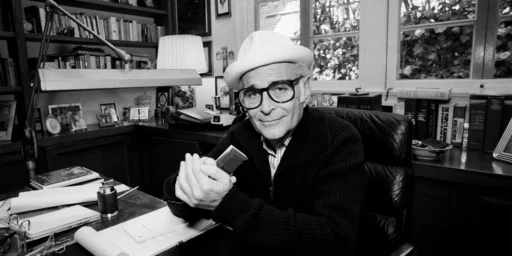Hillary Clinton Returning Hsu’s $850,000
Hillary Clinton will give back $850,000 in bundled funds raised, apparently illegally, by Norman Hsu.
Sen. Hillary Rodham Clinton’s presidential campaign said Monday it will return $850,000 in donations raised by Democratic fundraiser Norman Hsu, who is under federal investigation for allegedly violating election laws. Clinton, D-N.Y., previously had planned only to give to charity $23,000 she received from Hsu for her presidential and senatorial campaigns and to her political action committee, HillPac.
The FBI is investigating whether Hsu paid so-called straw donors to send campaign contributions to Clinton and other candidates, a law enforcement official said Monday.
“In light of recent events and allegations that Mr. Norman Hsu engaged in an illegal investment scheme, we have decided out of an abundance of caution to return the money he raised for our campaign,” Clinton spokesman Howard Wolfson said in a statement Monday night. “An estimated 260 donors this week will receive refunds totaling approximately $850,000 from the campaign.”
Wolfson said the Clinton campaign also will vigorously review its fundraisers, including thorough criminal background checks, in the future. “In any instances where a source of a bundler’s income is in question, the campaign will take affirmative steps to verify its origin,” he said.
The amount that the campaign identified as raised by Hsu would make him one of her top fundraisers. During the first six months of this year, her presidential campaign raised $52 million from individual contributors, second to Sen. Barack Obama, D-Ill., who raised $58.5 million.
Since 2004, Hsu has donated $260,000 to Democratic Party groups and federal candidates, and raised hundreds of thousands of additional dollars. He was regarded as a top party fundraiser until recent reports surfaced that he was wanted on a warrant in California in connection with a 1991 grand theft charge.
Federal authorities are looking into whether Hsu leaned on investors to contribute to political candidates after paying them big earnings from a shady business venture he was running, the law enforcement official said. Such a scam — using conduit contributors known as straw donors — is a violation of the Federal Election Campaign Act, which limits how much money individuals can give to candidates and political committees. The FBI may be looking at other potential charges as well, according to the law enforcement official who spoke on condition of anonymity because of the ongoing investigation.
This is the first time I’ve mentioned this scandal which has simply failed to pique my interest until now. I’m rather sure Hsu is a crook but have no reason to think Clinton or other Democratic candidates who took his money were involved in any wrongdoing or knew about the schemes. My hunch is that candidates don’t look gift horses in the mouth very often.
That the campaign will now start conducting criminal background checks on big donors is amusing. It’s a good PR move, I suppose, but rather silly. How many cases like this have their been?
Jeralyn Merritt hopes the checks will indeed be limited to big time bundlers. “For the individual donor, I think it’s important they be allowed to donate to political campaigns, up to the allowed $2,300.00, without fear of a background check.” Out of sheer practicality, I’m sure that will the case. I don’t know the logistics of running criminal checks from outside the auspices of a law enforcement agency but I’d imagine it’s rather expensive and time consuming. (I am, however, amused at the notion that donating money to political campaigns will reduce recidivism.)
 Flip Pidot has a clever comparison of the fundraising activities of Hsu and Jack Abramoff. Let’s be clear, though: The scandal in Abramoff’s case was that several political figures, including a White House staffer and two Congressmen, were involved in his crimes and that bribery took place. So far, the politicians to whom Hsu donated appear to be clean.
Flip Pidot has a clever comparison of the fundraising activities of Hsu and Jack Abramoff. Let’s be clear, though: The scandal in Abramoff’s case was that several political figures, including a White House staffer and two Congressmen, were involved in his crimes and that bribery took place. So far, the politicians to whom Hsu donated appear to be clean.
Does all this, as Gaius suggests, point to a wider “culture of corruption”? We’ll see, I suppose. The incentives to raise large piles of cash are strong and the penalties for wrongdoing are usually small and after-the-fact.
Roger L. Simon wonders if this might not signal the end of the era of big money politics.
McCain-Feingold solved nothing. One of things about the Thompson campaign is that he has been doing well without a lot of money (ahead in today’s Rasmussen). If that keeps up, maybe he will prove that you can run without such a ton of cash…. of course, he’s an actor and all but… with the current insatiable media, almost anyone credible gets a huge amount of attention. Maybe the ability to buy endless ads doesn’t amount to so much anymore. People tune them out. I know I do.
An intriguing concept but I’m a little dubious. Like Roger, I tune ads out. Still, ads must work in the aggregate or else Coca-Cola, Wal-Mart, and Nike — who are run by some pretty savvy people — would quit running them. And Fred Thompson has been the beneficiary of a lot of free media, partly owing to his non-political celebrity and partly because of the shrewdness of his long tease of a pre-campaign. I’m not sure how easily that could be replicated by other candidates.
Meanwhile, Ben Smith questions the timing.
Can you think of a better evening to get bad news out? It’s the eve of 9/11 and the midst of the Petraeus circus, not to mention the week of Rosh Hashannah. Anybody else got some bad news they want to dump?
This ain’t her first rodeo. Still, this news was prominently mentioned on NPR and the big papers, so it’s not as if this is going to be buried. No candidate wants to be associated with criminals. Again, though, there’s no reason to think she’s done anything wrong here.





Hillary Clinton, Wall Street’s favorite, according to Fortune magazine, should be returning money given to her by corporate criminals, corporations such as Coca-Cola and Wal-Mart, that have been accused of labor abuses and in the case of Coke, human rights and environmental abuses in Colombia, India and elsewhere.
And how about the insurance and pharmaceutical companies that support Sen. Clinton? These connections, as well as her connection to Mark Penn, who has been representing so many corporate criminals as CEO of Burson Marsteller, casts shadows on her candidacy.
Thanks for the link, James. You’re right of course that the Abramoff money was dirtier for its recipients than the Hsu money. But there are other important distinctions beyond the dollar value comparison. Abramoff contributions went to 20+ politicians, about two thirds of whom were Republicans. Hsu’s went to more than 80, all but one of whom was a Democrat (not to mention the large financial support of several Democratic committees). We also know where Abramoff’s money came from. That’s still a troubling question mark in the Hsu scandal.Generally though, I’m just weighing the two sacks, to give a little context of the relative size (and the relative party balance) of the two affairs.